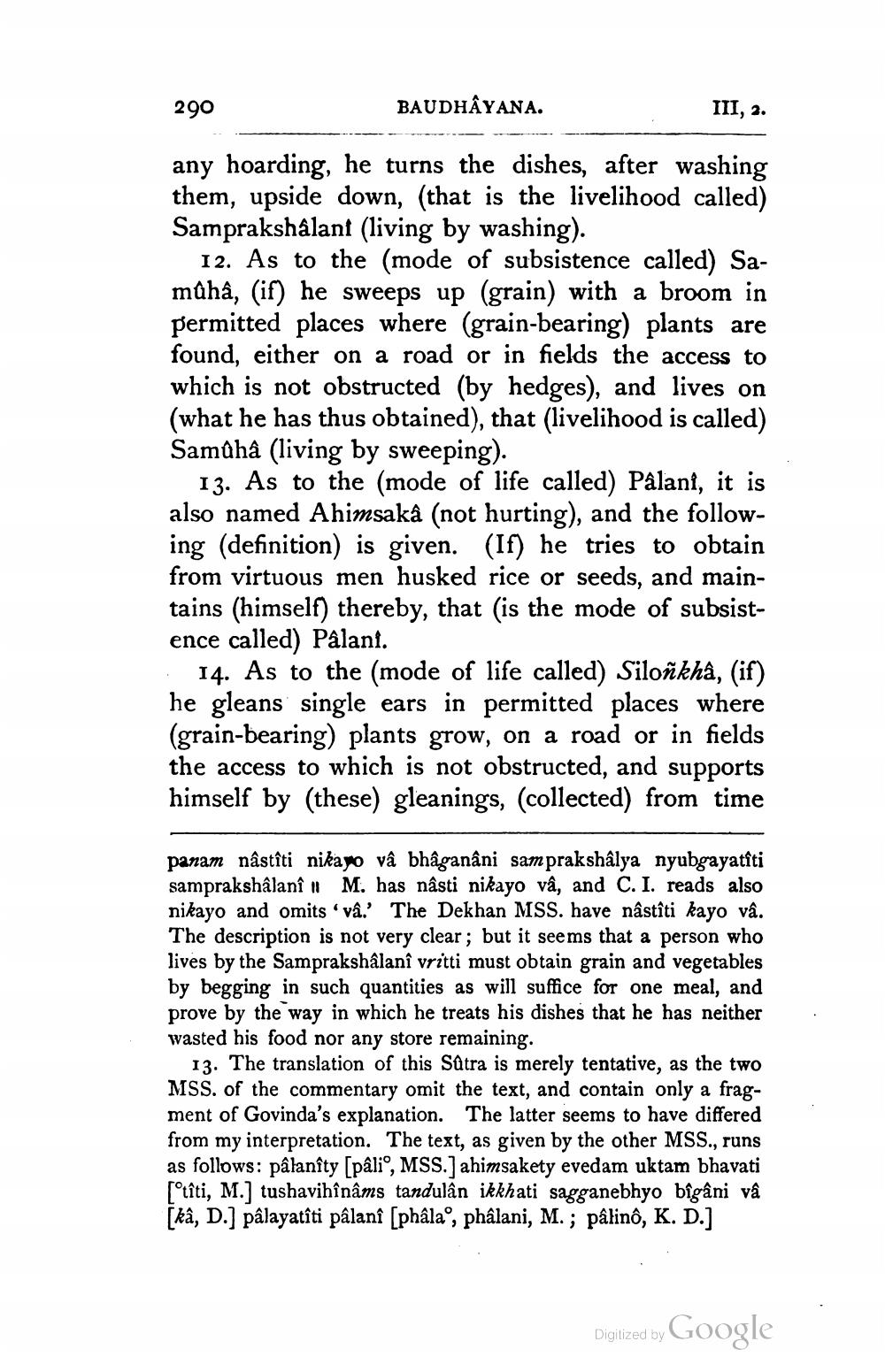________________
290
BAUDHAYANA.
III, 2.
any hoarding, he turns the dishes, after washing them, upside down, (that is the livelihood called) Samprakshålant (living by washing).
12. As to the (mode of subsistence called) Samuha, (if) he sweeps up (grain) with a broom in permitted places where (grain-bearing) plants are found, either on a road or in fields the access to which is not obstructed (by hedges), and lives on (what he has thus obtained), that (livelihood is called) Samdhå (living by sweeping).
13. As to the (mode of life called) Palani, it is also named Ahimsakà (not hurting), and the following (definition) is given. (If) he tries to obtain from virtuous men husked rice or seeds, and maintains (himself) thereby, that (is the mode of subsistence called) Palani.
14. As to the (mode of life called) Siloñkhâ, (if) he gleans single ears in permitted places where (grain-bearing) plants grow, on a road or in fields the access to which is not obstructed, and supports himself by (these) gleanings, (collected) from time
panam nâstîti nikayo vâ bhaganâni sam prakshâlya nyubgayatîti samprakshâlanî # M. has nâsti nikayo vâ, and C. I. reads also nikayo and omits va.' The Dekhan MSS. have nâstîti kayo va. The description is not very clear; but it seems that a person who lives by the Samprakshâlanî vritti must obtain grain and vegetables by begging in such quantities as will suffice for one meal, and prove by the way in which he treats his dishes that he has neither wasted his food nor any store remaining.
13. The translation of this Satra is merely tentative, as the two MSS. of the commentary omit the text, and contain only a fragment of Govinda's explanation. The latter seems to have differed from my interpretation. The text, as given by the other MSS., runs as follows: pâlanîty (pâlio, MSS.) ahimsakety evedam uktam bhavati [°tîti, M.) tushavihînâms tandulân ikkhati sagganebhyo bîgâni vâ [kâ, D.] pâlayatîti pâlanî [phâlao, phâlani, M.; pâlinô, K. D.]
Digitized by
Digilized by Google




